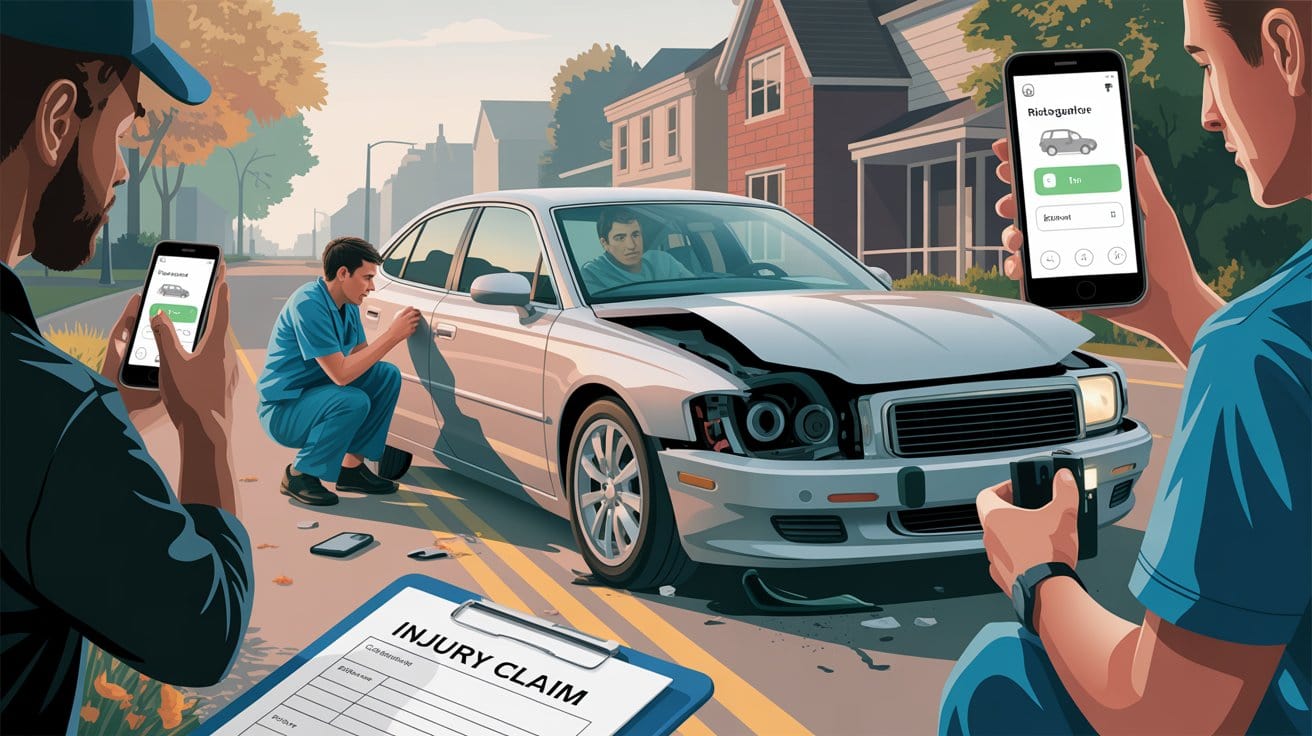If you were injured in an accident involving a Lyft vehicle in Michigan, you may be wondering about suing Lyft for your damages. Whether you were a passenger, a pedestrian, or a driver in another car, the process is more complex than a standard car accident claim. The key issue often comes down to the driver’s status and which insurance policy applies at the time of the crash.
At The Joseph Dedvukaj Firm, P.C., our attorneys have the experience to navigate these complexities. We can determine who is liable for your injuries and fight to get you the compensation you deserve.
Can You Sue Lyft Directly, or Do You Sue the Driver?
This is the most important question in a rideshare case. Lyft classifies its drivers as independent contractors, not employees. This is a legal distinction that Lyft uses to shield itself from direct responsibility for its drivers’ negligent actions. In most accident cases, your primary claim will be against the Lyft driver and their insurance.
However, the real financial protection for victims comes from Lyft’s own commercial insurance policy, which provides significant coverage. The challenge is knowing when this policy applies.
How Lyft’s Insurance Works: The Three Periods
Lyft’s insurance coverage depends entirely on the driver’s status at the moment of the accident. A skilled attorney will investigate to determine which of these three periods applies to your situation:
Period 1: App is On, Waiting for a Ride Request
If a Lyft driver has their app on but has not yet accepted a ride, Lyft’s limited liability insurance applies if the driver’s personal insurance denies the claim. This coverage in Michigan typically includes:
- $50,000 in bodily injury liability per person
- $100,000 in bodily injury liability per accident
- $25,000 in property damage liability
It’s important to note that Michigan’s minimum requirements for personal auto insurance are:
- Bodily Injury Liability: $50,000 per person and $100,000 per accident
- Property Damage Liability: $10,000 per accident
- Personal Injury Protection (PIP): Unlimited, but you can choose lower options like $500,000, $250,000, or even $50,000 if you qualify
- Property Protection Insurance (PPI): $1 million
Periods 2 & 3: On the Way to a Pickup or During a Ride
Once a driver accepts a ride request and is en route to the passenger, or has the passenger in the car, Lyft’s full $1 million third-party liability insurance policy is in effect. This policy covers injuries and damages to passengers, other drivers, pedestrians, or anyone else harmed by the at-fault Lyft driver.
App is Off
If the driver’s Lyft app is off, they are considered a private citizen. Only their personal auto insurance policy would apply to an accident.
When You Might Sue Lyft Directly
While most cases focus on the driver’s negligence and Lyft’s insurance, there are circumstances where you might have a direct claim against Lyft as a corporation. This often involves proving corporate negligence, such as:
Negligent Hiring
If Lyft failed to conduct a proper background check and hired a driver with a dangerous driving record or criminal history who then caused harm.
Failure to Maintain a Safe Platform
Issues with the app that may have contributed to an accident.
Assault by a Lyft Driver
If you were physically or sexually assaulted by a driver, you may have a strong case against Lyft for failing to ensure passenger safety.
Joint Enterprise Liability
Michigan law recognizes joint enterprise liability as another potential avenue for holding Lyft accountable. This legal theory requires proving four essential elements:
- An Agreement (Express or Implied): There must be an agreement between two or more parties to associate for a common purpose.
- A Common Purpose: The parties must be engaged in a joint undertaking or objective, typically of mutual interest, benefit, or profit.
- Community of Interest: There must be a common interest among the parties in the object or purpose of the enterprise, beyond just social companionship.
- Equal Right to Control: Each party must have an equal right to direct and control the means and methods of carrying out the enterprise. This right to control is the most critical element in Michigan case law.
Under this theory, if a joint enterprise can be established between Lyft and its drivers, Lyft could be held liable for the negligent acts of its drivers, even though they are classified as independent contractors.
These cases are complex and require a thorough investigation by an experienced attorney.
What to Do After an Accident Involving a Lyft
- Call 911: Report the accident and ensure anyone injured receives medical attention.
- Gather Evidence: Take photos of the scene, vehicle damage, and your injuries. Get contact information from witnesses.
- Take a Screenshot: Open your Lyft app and screenshot the ride details, including the driver’s name, vehicle, and trip map.
- Seek Medical Care: Get a full medical evaluation, even if you feel okay. Some serious injuries are not immediately apparent.
- Do Not Give a Statement: Do not give a recorded statement to any insurance adjuster—including Lyft’s—before speaking with an attorney.
- Contact an Attorney: Before you file a claim, discuss your case with a lawyer who understands the specifics of suing Lyft.
Get Help From an Experienced Michigan Rideshare Accident Lawyer
Navigating insurance claims with massive companies like Lyft can be difficult. They have teams of lawyers working to minimize what they have to pay. Our firm levels the playing field. For a complete overview of how we handle these cases, see our main Michigan Rideshare Accident Lawyer page.
If you were injured and are considering suing Lyft, contact The Joseph Dedvukaj Firm, P.C. today. Call us at 248-885-6614 for a free, no-obligation consultation to discuss your case.


